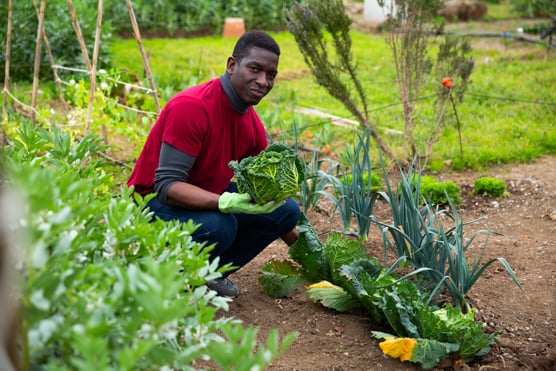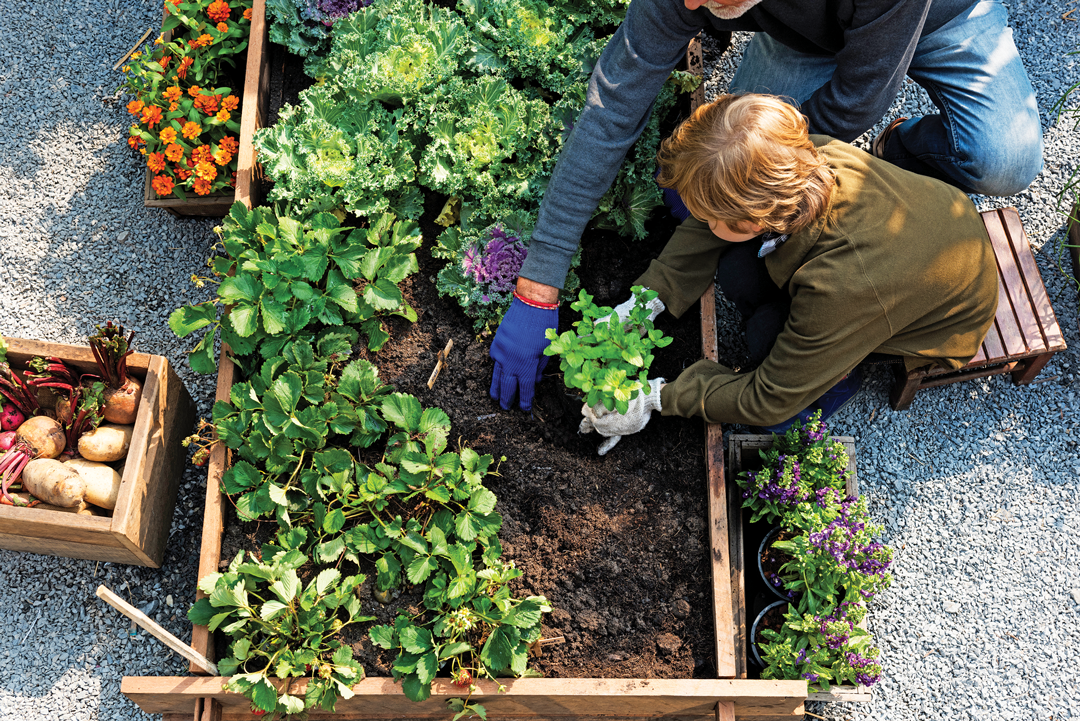Lasting Gardening Practices for an Eco-Friendly Garden
Unlocking the Benefits of Gardening: An In-depth Take A Look At the Different Types and Their Effect on Well-Being
Discovering the complex benefits of gardening exposes a spectrum of practices that significantly improve specific wellness. From vegetable and herb yards to container and elevated bed configurations, each kind offers unique advantages that extend past plain farming. These tasks not only foster physical health via energetic engagement but also add to psychological wellness by alleviating tension and encouraging mindfulness. As we check out these varied horticulture approaches, it ends up being apparent that their effect can reverberate on personal, social, and ecological levels, prompting a more detailed check out exactly how these links develop a natural story of holistic wellness.
Sorts Of Horticulture

Flower gardening, one more popular group, emphasizes the aesthetic allure of grown blooms. This kind can boost landscapes and advertise biodiversity by bring in advantageous pollinators. Likewise, natural herb gardening entails expanding fragrant and cooking plants, adding both to cooking and natural remedies.
Container gardening deals adaptability, making it possible for people with limited room to participate in horticulture by using pots and planters. This technique is specifically preferred in metropolitan settings. Elevated bed gardening, on the various other hand, involves developing raised stories that improve dirt water drainage and availability, making it much easier for gardeners to manage their plants.
Lastly, area horticulture cultivates partnership amongst individuals in shared areas, promoting social communication and collective responsibility. Each kind of gardening serves distinctive purposes and caters to different choices, making horticulture a functional task that can be tailored to private demands and atmospheres.
Mental Health And Wellness Advantages
Participating in different sorts of horticulture not just generates substantial benefits such as fresh produce and lovely flowers but likewise supplies substantial mental wellness benefits. Study shows that gardening can be an effective tool for decreasing stress, anxiousness, and anxiety. The act of having a tendency to plants and cultivating a garden promotes a feeling of function and accomplishment, which can improve total psychological health.
In addition, gardening motivates mindfulness, as it needs individuals to concentrate on today minute, whether it be growing seeds or supporting growth. This mindfulness technique can cause reduced rumination and enhanced mood stability. The direct exposure to native environments throughout horticulture has actually also been linked to enhanced cognitive operating and reduced feelings of fatigue.
Social interaction plays an important function in psychological health and wellness, and area gardening initiatives supply chances for individuals to connect with others, promoting a feeling of belonging. The shared experience of gardening can cultivate relationships and assistance networks, even more strengthening psychological resilience.
Physical Health Advantages
Lots of people may not recognize that horticulture also provides substantial physical health benefits. Participating in horticulture tasks requires a series of physical movements, including bending, lifting, excavating, and planting, which collectively add to enhanced strength, flexibility, and endurance. These actions can boost cardiovascular health by promoting a raised heart price, thereby minimizing the threat of like it heart illness.
Additionally, horticulture can function as a moderate-intensity exercise, helping people achieve recommended exercise levels. Researches show that regular involvement in gardening can melt significant calories-- roughly 200-400 calories per hour, depending upon the intensity of the tasks carried out. Such calorie expense is beneficial for weight management and overall metabolic health.
Additionally, direct exposure to sunlight during gardening can help with the synthesis of vitamin D, which plays a necessary function in keeping bone health and wellness and supporting immune feature. Moreover, the act of horticulture often includes working with dirt, which has actually been connected to potential psychological and physical health advantages as a result of the presence of useful bacteria. Gardening.
Social Links With Horticulture
The communal elements of gardening foster meaningful social links among people. Neighborhood yards, in certain, function as lively hubs where individuals from varied backgrounds collaborated, growing not only plants however also partnerships. These shared spaces encourage cooperation, enabling individuals to exchange knowledge, abilities, and sources, thereby boosting their gardening experience and promoting a sense of belonging.
Engagement in gardening activities usually results in the development of friendships and support networks. Participants regularly unite for typical goals, such as growing periods, harvest celebrations, or educational workshops, which enhance interpersonal ties and produce a sense of neighborhood. Such communications can alleviate sensations of seclusion and improve mental wellness, as individuals discover friendship and camaraderie in common endeavors.

Ecological Influence of Horticulture
Gardening dramatically adds to ecological sustainability in several methods. Home yards give crucial environments for different types, including pollinators such as bees and butterflies, which are important for community wellness.

Furthermore, yards play a critical duty in water conservation. Tactical landscapes, including native plants and xeriscaping, reduce water usage and protect against drainage, consequently securing local waterways from air pollution.
Conclusion

In final thought, horticulture functions as a multifaceted task that improves well-being across different domain names. The varied types of gardening-- including vegetable, flower, herb, container, and raised bed-- add to psychological and physical health, foster social links, and promote environmental sustainability. By participating in horticulture practices, look at this now people can experience improved quality of life while likewise supporting community bonds and ecological health. Ultimately, the holistic advantages of gardening emphasize its value as an essential element in enhancing overall health.